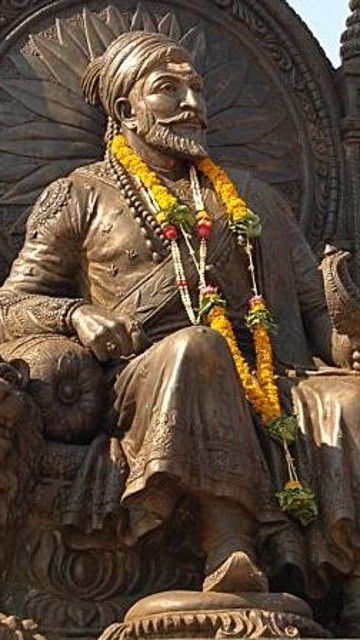Shivaji was born on February 19 at Shivneri fort in Pune.
February 19 marks the birthday anniversary of a ruler who carved a niche for himself with his guerrilla tactics, established the Maratha kingdom and fought Mughals. I am sure many of you would have already the guessed the warrior king referred here by now. For those who haven’t, this piece commemorates the 396th birth anniversary of Shivaji Bhonsale, better known as Chhatrapati Shivaji Maharaj.
Shivaji was born in 1627 AD at Shivneri fort in Pune and was named after Goddess Shivai.
Blessed with leadership skills and a born warrior, Shivaji can also be called the proponent of saffron rule, though he was extremely secular in his approach.
Here are some of the lesser facts about Shivaji:
1. Shivaji helped Aurangzeb conquer Bijapur
Shivaji maintained peaceful relations with Mughals. However, the bond between the two kingdoms was affected when his officer raided areas near Mughal Territory of Ahmednagar and Junnar. In retaliation to which, Mughals raided Shivaji’s terrority.
2. He was known as a mountain rat
Well versed with the geography of the region he would often plan surprise attacks on his enemies through his guerrilla tactics, which is why he was also known as a mountain rat.
3. He fought with his half brother Venkoji
Venkoji’s wife Dipa Bai had to negotiate with Shivaji, when Venkoji lost the lost in 1677. The dispute took place because negotiations between the two failed, Shivaji later took most of his possessions, that was when Dipa Bai had to step in.
4. Shivaji acquired forts by bribing at the age of 15
Shivaji bribed Inayat Khan, a Bijapuri commander, and an Adilshahi commander and acquired the fort of Torna and Kondana respectively from them.
5. Shivaji got his daughter Sakhubai married to a converted Hindu
Shivaji was secular king, but he never compromised his own religious roots. He helped people who wanted to convert to Hinduism, one such instance was when his daughter Sakhubai was married to her first-cousin Mahadji, who had been converted to Islam by Mughal emperor Aurangzeb.



Leave a reply